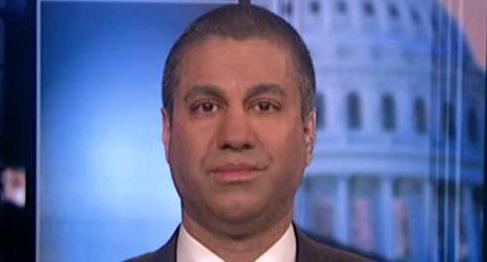FCC chair seeks to empower telecom firms to automatically block robocalls
The head of the Federal Communications Commission is seeking to give telecommunications firms the ability to automatically block potential robocalls without consumer consent.
Under the proposal from Chairman Ajit Pai unveiled on Wednesday, customers would need to opt-out of the offering. Such a system, Pai says, could have a "significant dent in robocalls," but the agency did not have a numerical estimate.
The FCC is seeking to broaden the uptick of call blocking services, which customers must currently engage in voluntarily, as well as empower providers to further develop the technology.
"Many voice providers have held off developing and deploying call blocking tools by default because of uncertainty about whether these tools are legal under the FCC’s rules. Allowing default call blocking by voice providers could significantly increase development and consumer adoption of such tools," Pai said in a statement.
Several existing applications also require a fee, but Pai says costs would be reduced under the new system because its more expensive to handle the ongoing flood of robocalls. The agency expects that consumers would be unlikely to face new fees.
"Companies setting a default of call blocking would use analytics to determine which calls to block, the same general approach as the current crop of call blocking apps," he told reporters. "We certainly encourage companies to offer this for free."
Along with analytics, companies could also allow customers to submit a so-called "white list" of allowable numbers, which would rely on existing contacts. Such a system, Pai said, could protect elderly individuals who are routinely targeted by scam calls.
Pai is also seeking to permit carriers to determine how so-called "shaken/stir" ID authentication standards, which rely upon a "digital fingerprint" to validate calls, can be used to cut-down robocalls.
While the FCC previously mandated adoption of the technology, under the proposal companies would be given the leeway to experiment with how it can be used to block unwanted calls.
There would not be legal liability for companies that employ the "shaken/stir" technology to block calls that have "not been authenticated under the framework," according to Pai.
The measures will be voted upon by the full FCC leadership on June 6.
CLICK HERE TO GET THE FOX BUSINESS APP
There were an estimated 47.8 billion robocalls in 2018, the bulk of which from scammers, and the FCC says it receives more than 200,000 complaints on the issue every year.




















